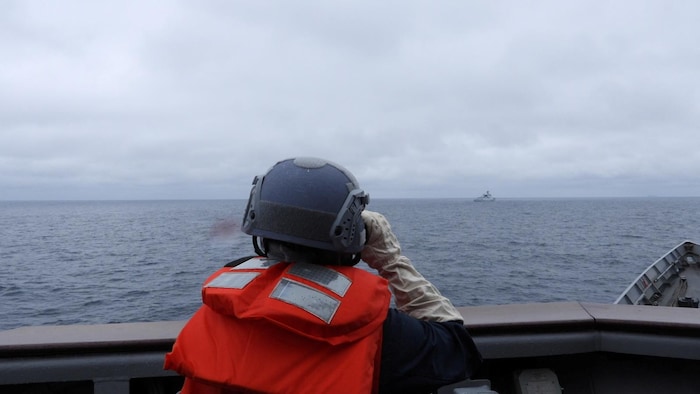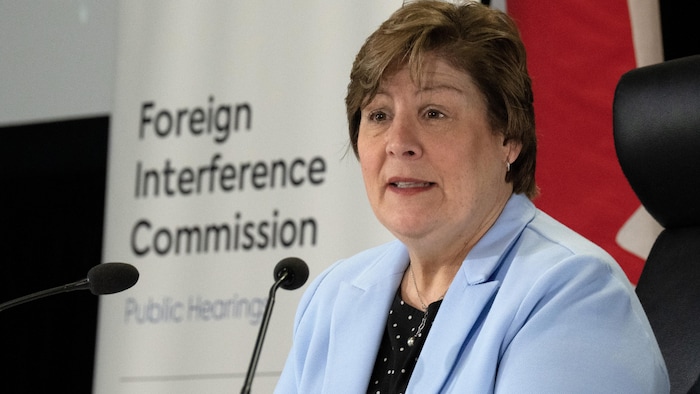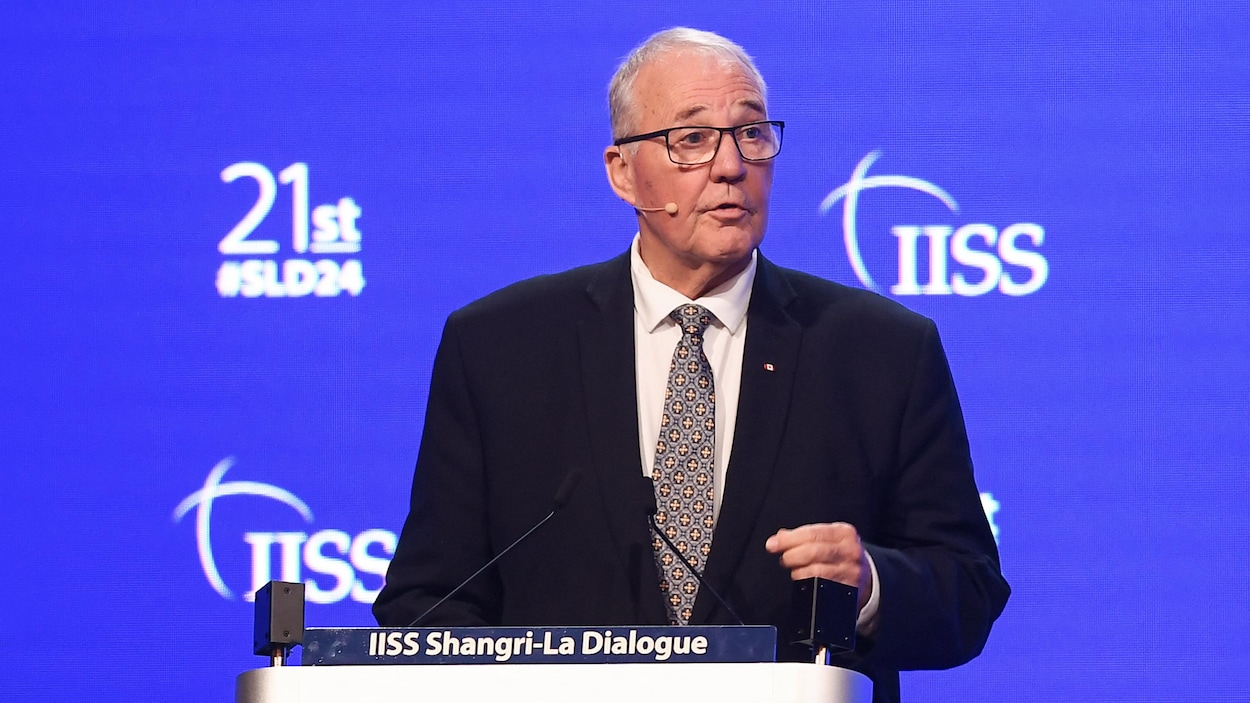The defense ministers of Canada and China met for the first time in 11 years at an international security conference, as the two countries work to restore lines of communication.
Bill Blair met Admiral Dong Jun on Friday while attending the Shangri-La Dialogue in Singapore, the first meeting between the Canadian and Chinese defense ministers since 2013.
Communication between our two countries is vital and I welcome new opportunities for dialogue.
Minister Blair said he expressed Canada's concerns about Beijing's foreign interference, its financial and economic support for Russia, and its recent military maneuvers in Taiwan.
China imposed a fake blockade on the island at the end of May, after the election of a new government that does not accept Beijing's position that Taiwan is part of China.
US Defense Secretary Lloyd Austin also raised the issue of China's actions in Taiwan during his meeting with Dung on Friday, according to Pentagon officials.
This was the first in-person meeting at the ministerial level since contact between the US and Chinese militaries was severed in 2022, when Nancy Pelosi, then Speaker of the US House of Representatives, angered Beijing by traveling to Taiwan.

A Taiwanese sailor watches a Chinese warship on May 23, 2024.
Photo: Reuters/Taiwan Ministry of Defence
In recent years, Canada has participated in US-led exercises in the Taiwan Strait. US officials say the exercises aim to emphasize freedom of navigation in disputed waters in the region.
There are reports that China took aggressive measures during these exercises. Last June, the United States published a video clip showing a Chinese ship blocking an American destroyer.
Then, in October, Blair accused the Chinese military of unacceptable and dangerous behavior after a fighter jet came within five meters of a Canadian surveillance plane over the East China Sea.
Canada has committed to continuing to send three naval ships to the region as part of its Indo-Pacific strategy, which also includes greater military cooperation and joint exercises with its allies in the Indo-Pacific region.
We stand ready to work with China and all our partners throughout the Indo-Pacific region to ensure a stable and secure region.
Reconciliation after tensions
His meeting with Mr. Dong is the latest in a series of high-level discussions that suggest relations between Canada and China are improving after years of tensions.
Foreign Minister Mélanie Jolie spoke with her Chinese counterpart Wang Yi in January, and the two ministers met in person in February.
Also in January, a senior Canadian military official, Major General Gregory Smith, told MPs that Ottawa was seeking to repair relations with China's defense attaché. He also noted that Canada has not conducted any military exercises or cooperated with the People's Liberation Army since 2018.
This was the same year that Huawei CEO Meng Wanzhou was arrested in Vancouver in an extradition case to the United States. China responded by arresting Canadians Michael Kovrig and Michael Spavor in what is widely seen as retaliation.
Diplomatic relations were tense for years during which Ms. Meng and Michaels remained in detention. Ms. Meng was released in September 2021; Mr. Kovrig and Mr. Spavor returned to Canada shortly thereafter.
As of the end of 2022, Global news And the Globe and Mail Published a series of articles based on leaked intelligence that Beijing attempted to interfere in the 2019 and 2021 Canadian federal elections.
The scandal finally led to the opening of a public investigation, the interim report of which was published at the beginning of May.

Commissioner Marie-José Hogue while presenting her initial report which stated that there was foreign interference in the 2019 and 2021 federal elections but that did not affect the results.
Photo: The Canadian Press/Adrian Wild
Commissioner Marie-Josée Hogue considered that the attempted interference did not affect the overall results of the elections or undermine the integrity of the electoral system.
His report reveals that it is possible that the election results in a small number of ballots were changed due to interference. He also cites two instances in which Beijing tried to influence the outcome. Ms Hogg said there was not enough evidence to draw conclusions about what actually happened in these two cases.
The interim report highlights that intelligence services were warned as early as the 1980s of Beijing's efforts to influence the Chinese diaspora in Canada.
With information fromNews agency

“Total coffee aficionado. Travel buff. Music ninja. Bacon nerd. Beeraholic.”






More Stories
Fluoroscopy | “Self-coup”?
This is why you find it difficult to wake up in the morning.
She meets her boss at the airport after taking sick leave.